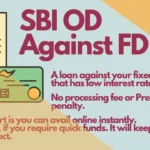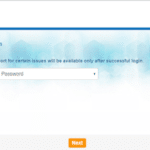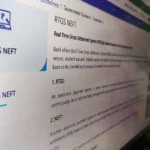When you are thinking of clearing loan dues, it’s best if you go with a solid plan to avoid income loss.
Having only a loan account is easy to manage, but when you have multiple loans, it becomes quite problematic.
Well, we have got you covered! In this article, we are discussing matters concerning the clearance of loans that are overdue.
When you have overdue EMIs, it will certainly affect your credit score, and it is not advisable to keep the overdue amount for a longer period of time.
Let’s say, do not go beyond 3 months. After 3 months, it will badly affect your credit score, which will remain in the report as it is, even after you pay off the debt.
Before we go further into understanding how we clear bad debts, let’s learn about some important points regarding the financial obligations that come along with a loan account.
What is a Loan Overdue?
Under normal circumstances, you pay back the loan either on a monthly basis (EMI-Equated Monthly Instalments) or as a bullet payment (When you pay the debt in a single payment at the end of the loan tenure).
When you have missed the payment of an EMI, the amount is considered overdue for payment.
This is the moment when you get messages and emails regarding payment of dues at the earliest possible time.
Sometimes, when you are unable to clear up within a month, the bank may change its recovery process from casual contact to sending notices, which ultimately leads to the issuance of legal papers.
A monthly payment that has been overdue for a few days is okay. When you pay before the month’s end, it may go away with a small penalty.
But if it goes beyond that, the penalty amount goes up, and your credit report may go from mild delinquency to the worst. Certainly, this is a matter of concern, and one should avoid it to avoid future rejection of loan applications.
Loan Delinquency: What Does It Imply?
DPD-Day Past Due is something the creditor used to refer to when processing a loan or any sort of advance.
It’s the past credit history of a person. In this report, you will see what sort of loans were taken, how payments were made, the EMI cost, and the outstanding balance.
Pretty much everything about your credit history is available online.
Now, when you have an excessive loan outstanding with late payments of EMI, the credit report, such as CIBIL or CRIF, will mark your report under loan delinquency.
This means your payments are not good and are somehow late or overdue for a longer period of time.
To avoid this, you have to make sure the EMI execution date and the bank account have sufficient balances. In the case of a larger overdue amount, you have to seek advice from a professional.
There are ways to settle the issue. It can be a restructuring of the troubled loan account, or you can go for settlement by paying the discounted amount.
Let’s see how to Clear an Overdue account quickly and in a more efficient way. And we will see how to get a minimum impact on the CIBIL score.
First, Understand What Kind of Loan You Have
Not all loans are the same. Personal loans, home loans, car loans, business loans, and student loans. These loans have their own specific purpose and their own terms and conditions.
Normally, business loans and personal loans have a higher rate of interest than their counterparts. You should go for clearing overdue for these loans first and then go for others.
Next, you need to find out whether there is a late payment penalty. If yes, then you need to pay the penalty before contacting your lender.
When was the Last Payment Made?
Once you know the last payment date, you can calculate the number of overdue days between the due date and the payment date.
The EMI overdue penalty, which banks levy, is calculated on the period from the day you miss the EMI to the day you pay it up. It will calculate the total amount of EMI you have missed.
So, finding out your last payment is important to determine your total overdue amount, including charges and penalties.
Banks usually charge these penalties at 1 to 4 percent of the overdue amount. For instance, if you have an overdue amount of ₹20000 and it’s been overdue for the past 30 days, the late payment penalty would be around ₹33.
Meet the Bank’s Official to Avoid Complications
If you are unable to pay off your loan by the due date, then you should contact your lender as soon as possible. You can explore options to get better resolutions.
Banks have schemes for stressed assets. Whether it’s a one-time offer scheme or another waiver scheme, if you have financial difficulties, it’s worth trying out these resolution mechanisms.
They will ask you to provide proof of income, such as bank statements, tax returns, and other forms.
Pay off the Remaining Balance
Once you have paid the penalty for the overdue amount, your bank will advise you to pay the interest and principal demand as an EMI.
Pay up the overdue amount, and then your loan account will be upgraded to standard.
It may take a while to get it reflected on your credit report, but it will get better for sure in the days to come.
If You Need Further Assistance, Ask if You qualify for an Extension
To find out whether or not your loan qualifies for an extension, you must first contact your lender. They should provide you with a list of documents that you need to submit to them.
These documents include proof of income, employment history, and other financial records.
A loan extension is nothing but the restructuring of your monthly payments toward loan obligations. In doing that, the loan tenure may be extended, and a reduced EMI cost will be offered to you as per your present situation.
Once you have provided them with the required documentation, they will review your situation and determine whether or not you qualify for an extension.
If you do qualify, they will extend your payment plan until the next scheduled payment date. Re-scheduling of loan EMI is the last thing a bank would go for. As the bank has to follow certain guidelines laid down by the regulatory authority, it’s hardly seen the restructuring of loan accounts.









